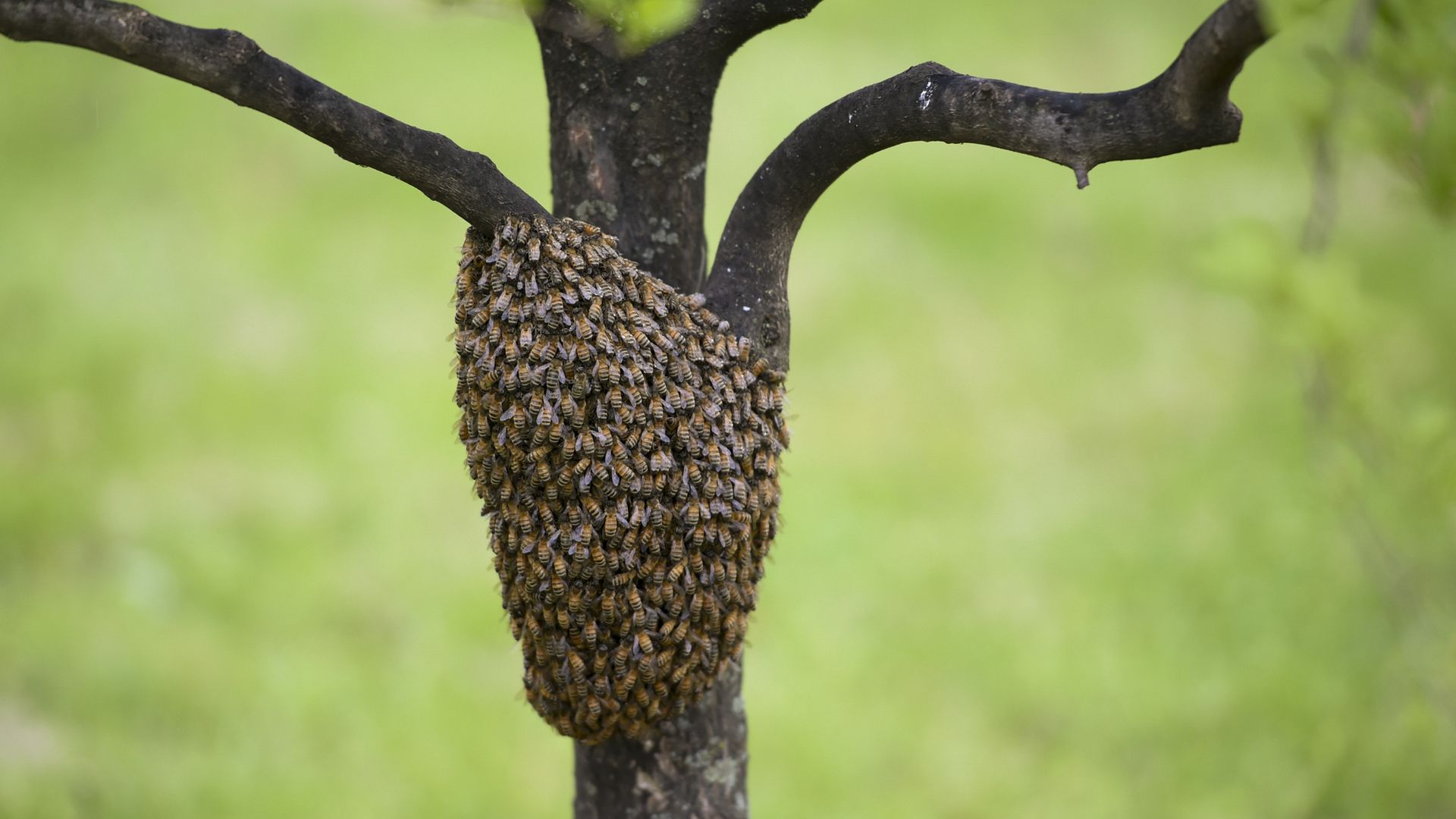May 2, 2020 - Energy & Climate
"Murder hornets" arrive in the U.S.
Add Axios as your preferred source to
see more of our stories on Google.

A swarm of bees in West Reading, Penns. on April 21. Scientists are concerend that Asian giant hornets could "decimate" U.S. bee populations. Photo: Lauren A. Little/MediaNews Group/Reading Eagle via Getty Images
